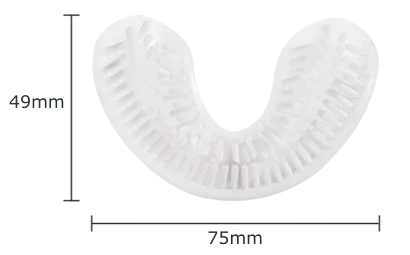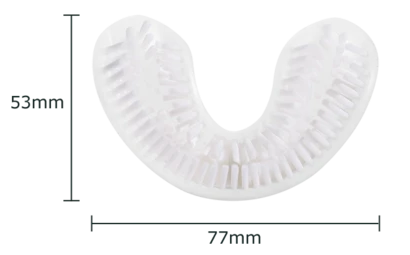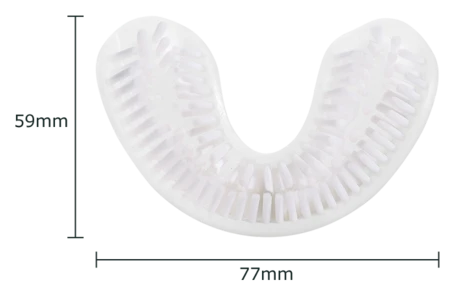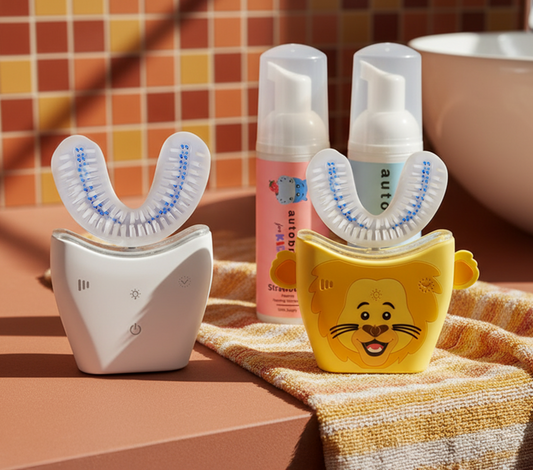
How To Brush Baby Teeth
Baby teeth, while only temporary, play a critical role in your child’s overall development. In fact, it’s necessary to keep your child’s baby teeth in excellent condition in order to keep dental issues like cavities at bay as well as support proper speech development and eating habits.
In this blog, we’ll go over when you should start cleaning your little one’s mouth + how to brush baby’s first teeth.
Are you a new parent or caregiver? Click here to get a month by month baby dental care guide + tips for easing teething pain.
When Do You Start Brushing Your Baby’s Teeth?
Pediatric dentists recommend cleaning baby’s mouth starting on day one. That’s right – even before a baby has their first tooth! Just like your mouth, your baby’s is a breeding ground for bacteria and plaque. To avoid sticky plaque clinging to your baby’s gums and damaging their teeth during eruptions, it’s best to get in the habit of cleaning their gums every day.
Rather than cleaning baby's gums with a toothbrush, try a clean, damp cloth or a silicone finger brush. They're both gentle options with a nubby texture babies tend to love. Hold off on the use of toothpaste until your baby erupts their first tooth.
How to Brush Baby Teeth
- Dampen a soft-bristled baby toothbrush with warm water.
- Apply a small dab of toothpaste (about the size of a grain of rice).
- Brush the fronts and backs of the tooth/teeth.
- Brush 2x daily.
FAQs
Can Babies Use Toothpaste?
Yes – if your baby has their first tooth. Most baby toothpastes are designed to be safe if swallowed and when appropriate amounts are used. Always check the back side of your toothpaste for proper dosage and to ensure it has healthy ingredients.
The American Academy of Pediatrics (AAP) recommends parents practice the following toothbrushing guidelines:
- Don’t use toothpaste until your baby’s first tooth erupts.
- From 1st tooth eruption to 2 years old: toothpaste usage should approximately be the amount of a grain of rice
- For children aged 3 and older: use a pea-size amount of toothpaste and encourage spitting it out after brushing
"Help! My baby doesn't like brushing her teeth. What should I do?"

This is a new skill for your little one, so be patient and try to make the experience positive. From the monkey-see-monkey-do approach to singing a song, there are several ways to make brushing engaging. Click here for the top 5 motivating toothbrushing techniques that actually work.
Toothy tip: Sometime all a kiddo needs for motivation is a new fun toothbrush. In fact, the AutoBrush Pro: Kids is designed to help children enjoy brushing their teeth. It transforms brushing from a chore into a fun activity with fun animal designs, built-in jungle music, functional and safe LED lights, and 3 built-in brushing and timer modes.













